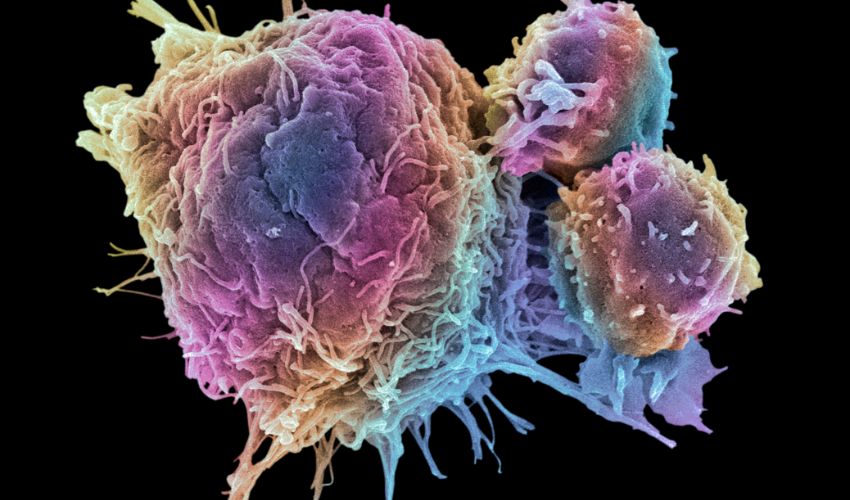Cancer is a devastating disease that affects millions of people worldwide. While traditional treatments like chemotherapy and radiation have been the primary options for cancer treatment for many years, they often come with harsh side effects and are not always effective. However, there is a new treatment option available known as immunotherapy that is changing the game in the fight against cancer. In this article, we will explore the exciting world of immunotherapy, how it works, and its potential for the future of cancer treatment.
What is Immunotherapy?
Immunotherapy is a cutting-edge treatment option that uses the body’s own immune system to fight cancer. It works by either boosting the immune system’s natural ability to detect and destroy cancer cells or by targeting specific proteins on cancer cells to trigger an immune response.
How Does Immunotherapy Work?
The immune system is designed to detect and destroy abnormal cells in the body, including cancer cells. However, cancer cells have ways of evading detection and can even suppress the immune system’s response. Immunotherapy works by either boosting the immune system’s ability to detect and destroy cancer cells or by targeting specific proteins on cancer cells to trigger an immune response.
Types of Immunotherapy
There are several types of immunotherapy, including:
- Monoclonal antibodies: These are lab-made proteins that can target specific proteins on cancer cells to trigger an immune response.
- Checkpoint inhibitors: These drugs help the immune system recognize and attack cancer cells by blocking proteins that prevent the immune system from recognizing cancer cells as foreign.
- Cancer vaccines: These vaccines can help the immune system recognize and attack cancer cells by exposing it to specific proteins found on cancer cells.
- Adoptive cell transfer: This involves removing immune cells from the patient, modifying them in the lab to recognize and attack cancer cells, and then infusing them back into the patient’s body.

Benefits of Immunotherapy
Compared to traditional cancer treatments like chemotherapy and radiation, immunotherapy offers several benefits, including:
- Fewer side effects: Immunotherapy targets cancer cells specifically, which can lead to fewer side effects compared to traditional treatments that can damage healthy cells as well.
- Potential for long-term remission: Immunotherapy has shown promise in clinical trials for achieving long-term cancer remission.
- Targeted treatment: Immunotherapy can target specific proteins on cancer cells, making it a more precise treatment option.
Risks and Side Effects of Immunotherapy
While immunotherapy can offer several benefits, it can also come with its own risks and side effects, including:
- Fatigue
- Fever
- Flu-like symptoms
- Skin reactions
- In rare cases, more serious side effects like inflammation of the lungs or liver
Who is a Candidate for Immunotherapy?
Candidates for immunotherapy include:
- Advanced stage cancer patients
- Those who have not responded to other treatments
- Those who want to avoid traditional cancer treatments
Cost of Immunotherapy
The cost of immunotherapy can vary greatly depending on the type of treatment and insurance coverage. Some treatments can be quite expensive, but many insurance plans cover at least part of the cost.
Bullet Points:
- Immunotherapy works by harnessing the power of the immune system to fight cancer
- Types of immunotherapy include monoclonal antibodies, checkpoint inhibitors, cancer vaccines, and adoptive cell transfer
- Benefits of immunotherapy include fewer side effects compared to traditional treatments and potential for long-term cancer remission
- Risks and side effects of immunotherapy include fatigue, fever, and flu-like symptoms
- Candidates for immunotherapy include advanced stage cancer patients, those who have not responded to other treatments, and those who want to avoid traditional cancer treatments
- The cost of immunotherapy can vary greatly depending on the type of treatment and insurance coverage
- Immunotherapy may not work for all types of cancer, but research is ongoing to expand its use
- Immunotherapy is not a cure for cancer, but it can offer hope for long-term remission and improved quality of life
FAQs:
Is immunotherapy a new treatment for cancer?
While immunotherapy has gained widespread attention in recent years, research in this area has been ongoing for decades.

How effective is immunotherapy?
The effectiveness of immunotherapy can vary depending on the type of cancer and the stage of the disease. However, it has shown promising results in many clinical trials.
What are the risks of immunotherapy?
Risks of immunotherapy include fatigue, fever, and flu-like symptoms. In rare cases, it can lead to more serious side effects like inflammation of the lungs or liver.
Who is a candidate for immunotherapy?
Candidates for immunotherapy include advanced stage cancer patients, those who have not responded to other treatments, and those who want to avoid traditional cancer treatments.
Can immunotherapy cure cancer?
Immunotherapy is not a cure for cancer, but it can offer hope for long-term remission and improved quality of life.
Conclusion:
Immunotherapy is a cutting edge treatment option that is offering hope to cancer patients worldwide. By harnessing the power of the immune system, immunotherapy is revolutionizing cancer treatment and offering new options for patients who have not responded to traditional treatments. While it may not work for all types of cancer and can come with its own risks and side effects, the potential benefits are significant, including fewer side effects and the potential for long-term cancer remission.
As research in this area continues, immunotherapy is likely to become an increasingly important tool in the fight against cancer. For patients and their families, it offers hope and the possibility of a brighter future. If you or a loved one is struggling with cancer, be sure to talk to your doctor about whether immunotherapy may be right for you. With the right treatment and care, there is always hope for a better tomorrow.






















